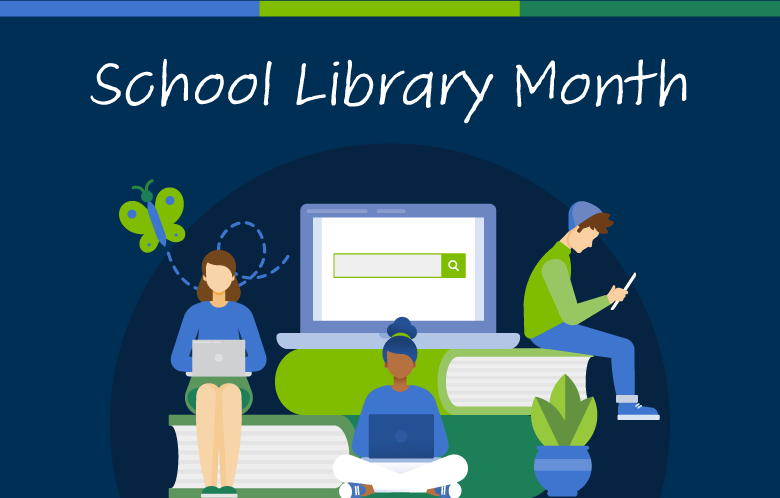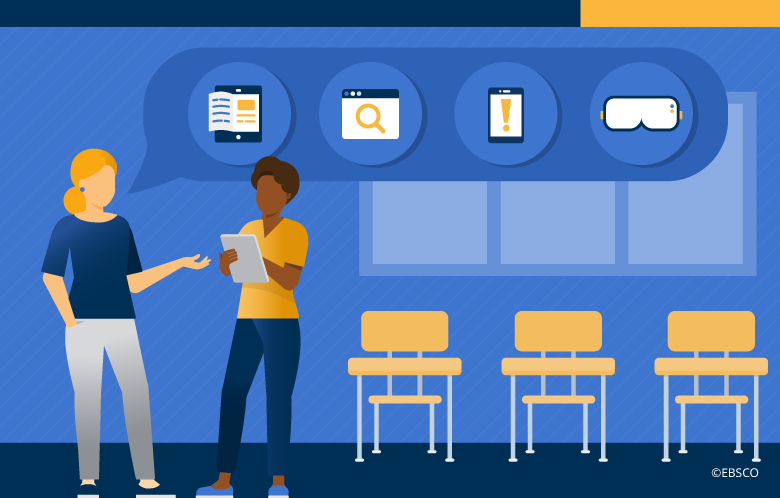Financial literacy is an essential life skill. Without it, individuals might struggle to manage their money, make informed financial decisions, and plan for a financially secure future. Experts suggest that teaching financial literacy should begin at a young age, and high schools in many American states are prioritizing financial literacy education. Currently, 28 states require high schools to offer a personal finance course. Of those, 15 require students to take a personal finance course to graduate.
Here are five ways school libraries — and the teacher-librarians who run them — can help increase financial literacy in their school communities:
Provide access to reliable financial literacy resources
School libraries can provide access to a wide range of financial literacy resources, including books, articles, reputable websites and short personal finance lessons from FinancialFit that can help students learn about budgeting, saving, investing and other financial topics. Libraries can also subscribe to digital magazines such as Kiplinger’s Personal Finance that can give students up-to-date information on the latest trends and best practices in finance. By providing access to these resources, school libraries can support self-directed learning on financial literacy topics.
Collaborate with teachers
One of the most effective ways to increase student financial literacy is by integrating personal finance education into the school curriculum. This can be achieved by offering a dedicated financial literacy course or embedding financial concepts into existing subjects such as math, social studies or economics. For example, math classes can teach students about budgeting and interest rates. Social studies classes can cover topics such as taxes, investing and the economy.
In addition to curating appropriate resources to support financial literacy curriculum, school librarians can work with teachers to develop personal finance lesson plans that are practical and relevant to students — lessons that help them understand how to manage their money in the real world. By collaborating with teachers, school librarians can help ensure that financial literacy is integrated into the curriculum and taught in meaningful and engaging ways.
Partner with financial institutions
School libraries can also partner with local financial institutions to provide financial literacy education to students. Banks and credit unions often offer educational programs, workshops and materials that can be used in the classroom.
In addition, school libraries can invite subject-matter experts such as financial advisors, bankers and accountants to speak to students about financial concepts and answer their questions. Schools can also organize field trips to local banks or offer internships to students interested in finance.
Provide extra-curricular learning opportunities
Students interested in finance will benefit from having extra-curricular opportunities to develop their knowledge and skills. Librarians can encourage students to start their own chapter of the Young Investors Society (YIS) and offer to serve as the teacher-advisor. YIS is an organization that aims to teach students the finance skills they will need to take control of their financial future. To be recognized as an official YIS chapter, one teacher-advisor and at least three students must register. Once registered, the teacher-advisor can download a variety of free lesson plans.
As entrepreneurial thinkers themselves, school librarians would also make great DECA teacher-advisors. DECA is an organization that prepares emerging leaders for college programs and careers in marketing, finance, hospitality and management. DECA provides students with authentic learning experiences through classroom instruction, project-based activities, business partnerships and competitions.
School librarians can also increase financial literacy among students by planning fun and engaging activities. These can include simulations, games and other interactive experiences that teach students about financial concepts. For example, schools can organize stock market games that allow students to practice managing money in a virtual environment.
Host financial information sessions
Finally, school libraries can host financial information sessions for students, parents and other members of the school community who need extra support. This can include one-on-one meetings with financial experts or group workshops on specific financial topics, such as paying for college and managing student loan debt. Financial information sessions can help participants understand their financial situations, develop plans to reach their financial goals, and learn about financial resources available to them.
By providing access to high-quality resources, collaborating with teachers, partnering with financial institutions, providing extra-curricular learning opportunities, and hosting financial information sessions, school libraries can help students develop the skills and knowledge they need to manage their finances effectively. By doing so, school libraries can make a significant contribution to the financial well-being of their students and their communities.



